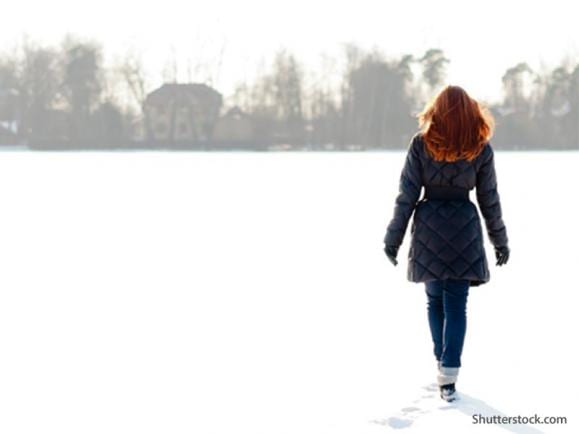
For some, winter is the most dreaded season of all. Between the lack of daylight, gray skies, layers of sweaters, flu season, and snow shoveling, we’re often left praying for spring by the time January rolls around. Others, though, absolutely love the winter months. It brings the holidays, lots of snow, and delicious hot chocolate by the fire.
No matter what camp you’re in, it's important that you get through the winter months safely. As fall comes to a close, it’s time to think about winter safety. This means preparing your home, protecting yourself from viruses, and keeping your physical and mental health in check. Here are some winter safety tips so you can weather the weather.
Cold exposure health risks.
You've heard of frostbite and hypothermia, but do you know the signs or symptoms? Frostbite happens when parts of your body freeze and can cause permanent body damage. At first, this can present as cold skin and a prickling feeling. As it progresses, symptoms include blue skin from poor circulation, stinging, or redness and blistering or waxy skin.
Hypothermia happens when the body temperature drops below 95 degrees. A sign of hypothermia is severe shivering. If not treated, shivering can give way to drowsiness, fatigue, confusion and shallow breathing. Get the victim to a warm space and remove wet clothing. Wrap victim with blankets or towels to warm them up. Always call for professional help.
To avoid frostbite and hypothermia, one should dress in loose layers and make sure extremities such as hands, feet, ears, nose and cheeks are covered. Stay out of the cold when it's dropped to extreme temperatures, and take breaks from the fun in the snow as necessary.
Keeping yourself healthy.
You have probably experienced getting a cold or flu in the winter months, as that is when they are spread the most easily. When it comes to winter health, there are some tips that can help the winter go a bit easier for almost all parents and children. This includes getting a yearly flu shot, teaching your children good hand washing techniques, showing children proper cough etiquette (sneezing in a tissue or their elbow), and avoiding sharing drinks and food with others. Furthermore, make sure to keep yourself and your kids home from work or school when you are sick, to avoid spreading germs to others.
The winter months can also cause some health issues not spread by germs. For example, many of those with asthma and chronic coughing have issues during winter months as the cold weather can be a trigger. Make sure you have the right medications from your doctor to avoid problems. Furthermore, a lack of humidity from cold, dry air outside and the warm, dry air inside often leads adults and children to have itchy, dry skin during the winter. Using a good moisturizer can help alleviate pain.
Carbon monoxide poisoning risk factors.
The heating season also increases the dangers of carbon monoxide poisoning. Carbon monoxide is a clear, odorless and potentially fatal gas produced by home heating systems, hot water heaters, faulty chimneys, kerosene or fuel oil room heaters, gas stoves, fireplaces, charcoal grills and car exhaust. It can cause flu-like symptoms, vomiting, loss of consciousness, brain damage and eventually death. A functioning carbon monoxide detector can save lives. For your family’s safety, check your detectors monthly to ensure the batteries are working.
Preparing your car.
Keep your car prepared for driving in winter weather, even if you don’t expect to encounter any snow. Make sure your tires have enough tread, replace your windshield wiper blades, and check your battery’s health. Fill up your fluids, including windshield wiper fluid and coolant, and fill your gas tank. Keep an emergency kit in your car and always clear the snow off your car so you can see well, and other drivers aren’t hit by your flying snow.
If you do have to drive in the show, being overconfident in your driving skills in the winter can make you a danger to yourself and others on the road. Slow down and give other drivers plenty of room. Take your time changing lanes, turning and starting and stopping the car. Even when the roads look clear, keep an eye out for any black ice.
Getting your home ready.
The winter weather can certainly increase the probability of power outages. With heavy snowfall and icy conditions, power lines can become weighed down and break. Make sure to stock up on flashlights and batteries so that you can find your way around your home if the lights go out. Next, keep non-perishable foods in your pantry that you can eat cold. Also make sure you have a stack of blankets and warm layers in an easily accessible place if the heat goes out.
Next, make sure you always shovel your walkways and driveways during snow storms to prevent falls. When a fall occurs, there is a much larger risk of breaking a bone for children and seniors. If you are not able to salt and shovel your driveway yourself, enlist the help of one of your neighbors.
Taking extra care in the winter months can protect children from potentially life-threatening physical problems. As new elements arise outdoors and inside, adults should be aware of these changes and how to keep children safe. These tips will ensure that your family has fun in the snow, but does so without the fear of safety issues.

